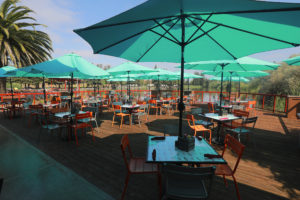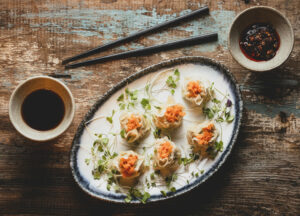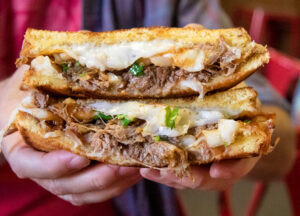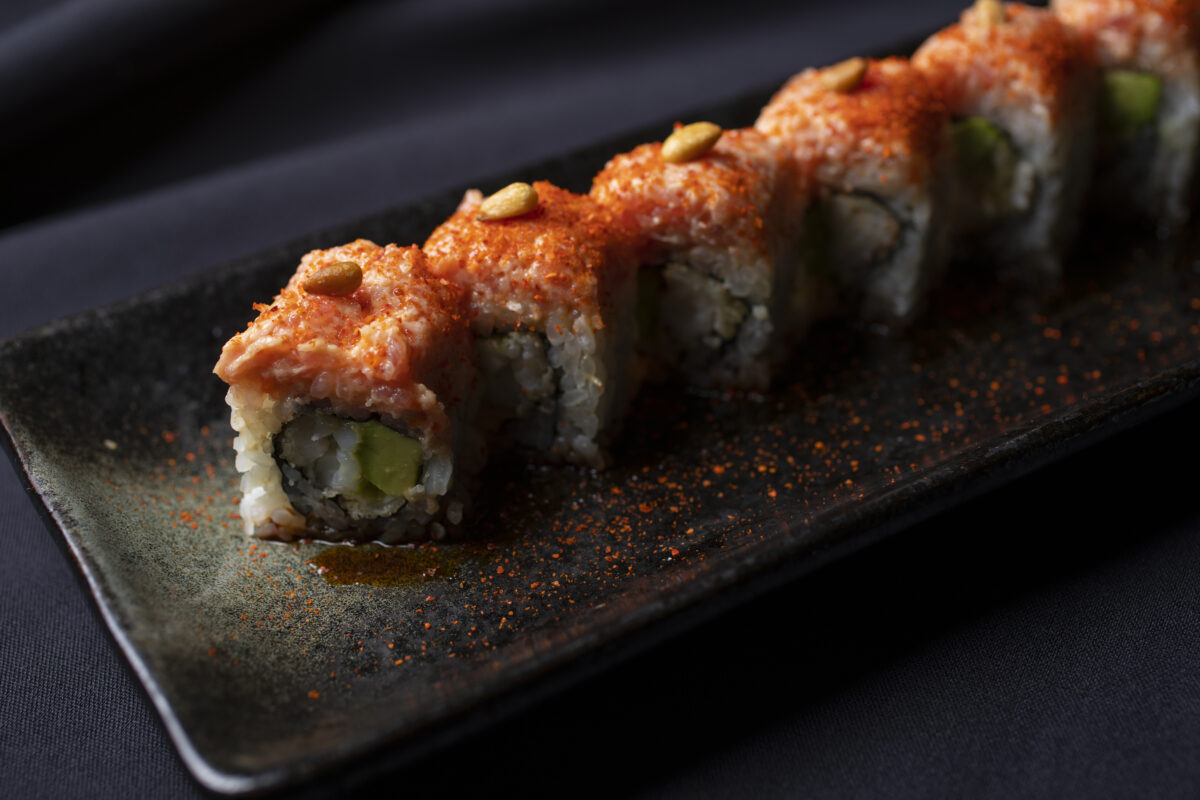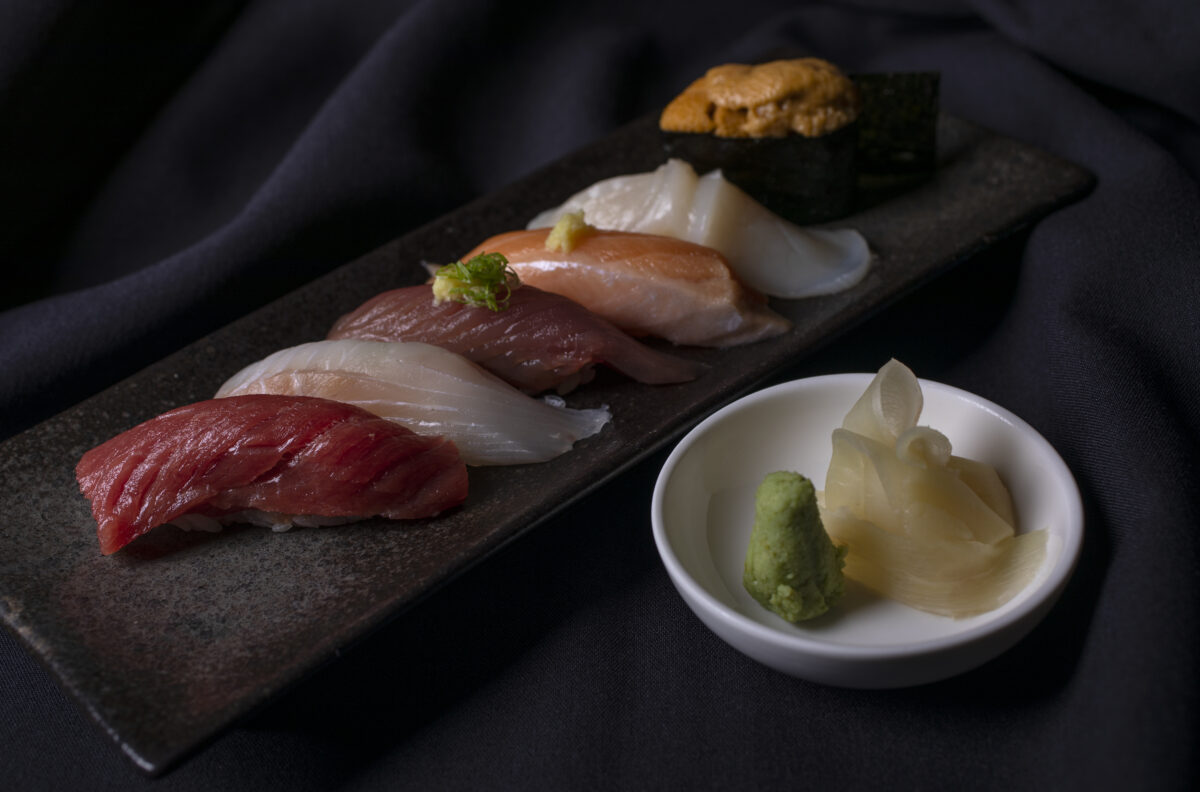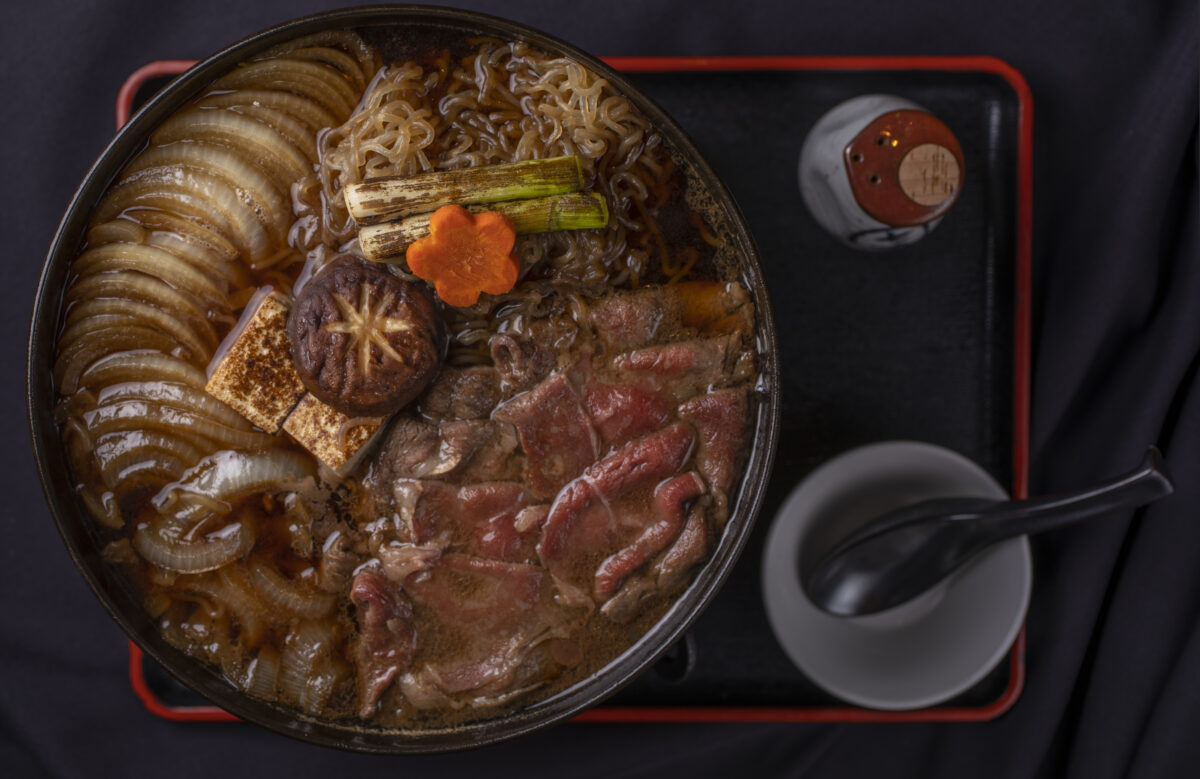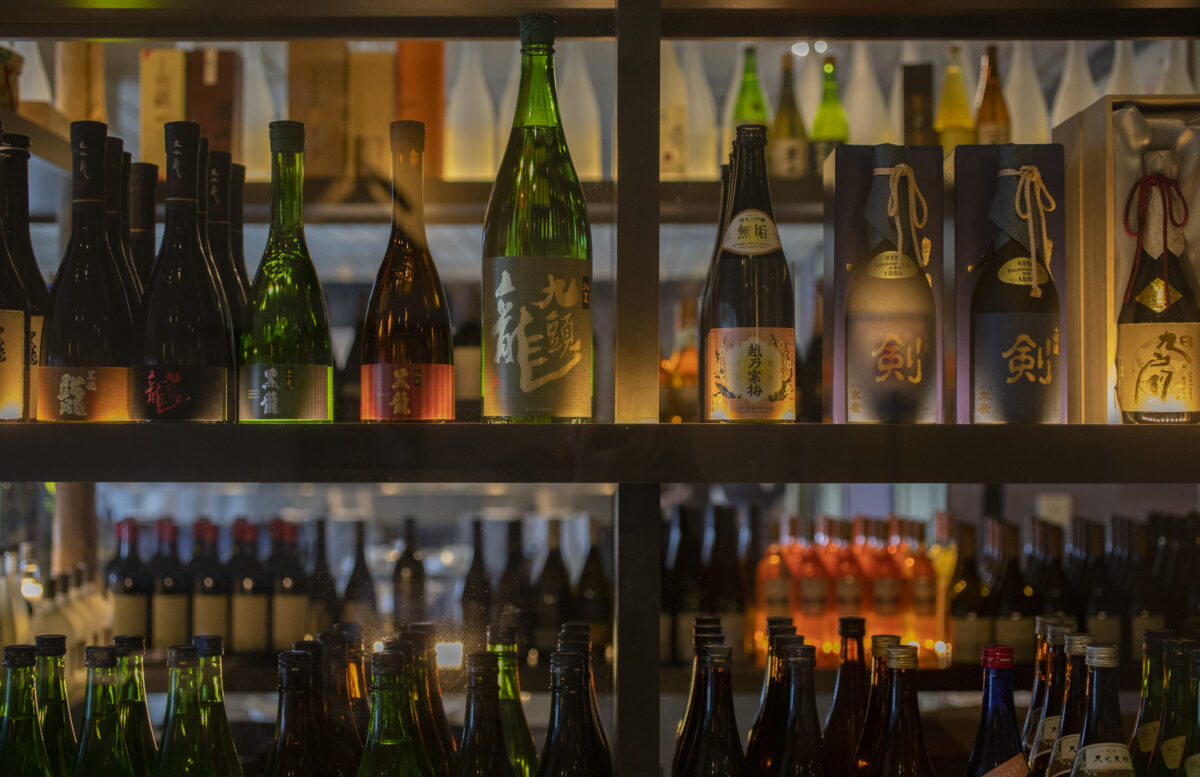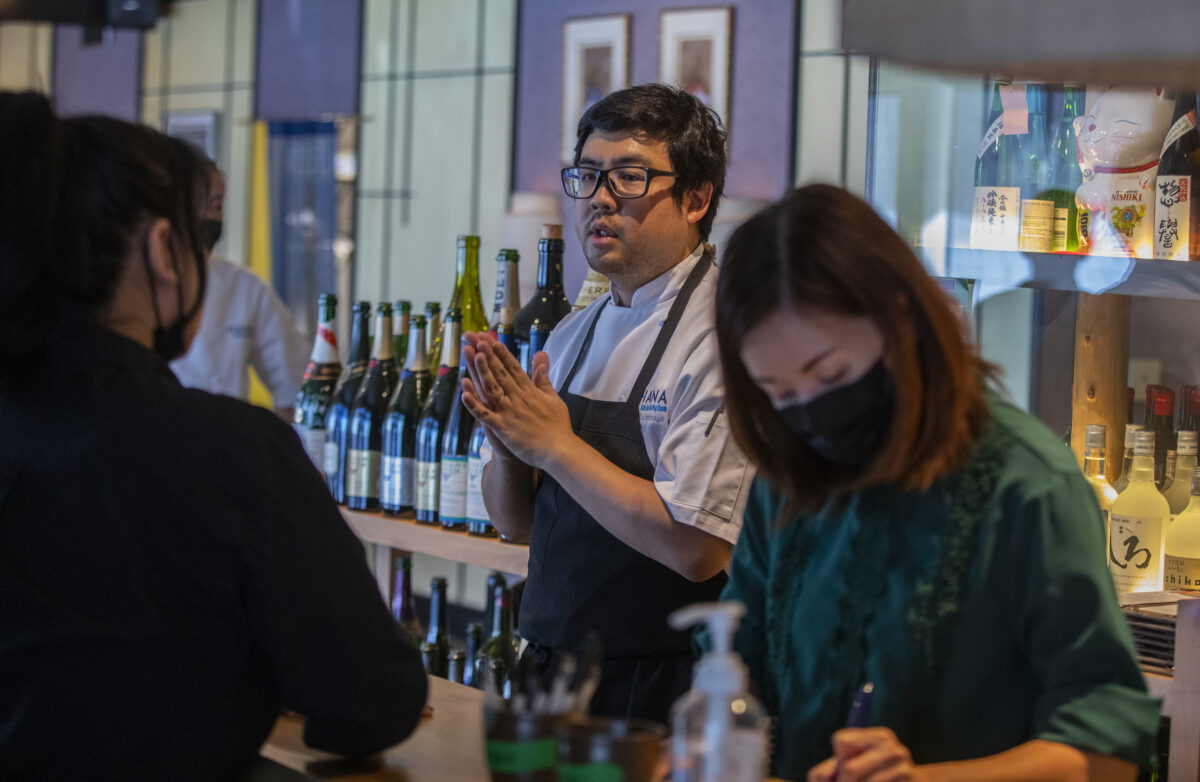Each day Keita Tominaga opens the doors of Hana Japanese restaurant, he faces a challenging prospect — stepping into his late father’s shoes.
In May, the 31-year-old chef took up the reins of the venerated Japanese restaurant in Rohnert Park and PABU Izakaya in San Francisco, following the untimely death of his father, Kenichi “Ken” Tominaga, at age 61.
Ken Tominaga opened Hana in 1990 — long before nigiri and sushi rolls were a common sight in Wine Country — and PABU in 2014 with Chef Michal Mina (three additional locations in Boston are now closed). Most recently, the popular chef partnered with Dustin Valette to operate a sushi bar at Valette’s three-story Matheson restaurant in Healdsburg.
Ken’s greatest legacy, however, was his jubilant hospitality and kinship with the local food and wine community. Almost any night, you could find off-duty chefs seated at his sushi bar or sipping sake at a table and chatting with him.
“I was planning to take over the restaurant, but not this way,” said Keita Tominaga, looking around the empty Rohnert Park restaurant in late September as kitchen staff prepared for service later that evening. In the months since his father’s death, Tominaga says, many chefs have come to the restaurant to pay their respects and offer advice and support.
Though Keita always had planned to follow in his father’s footsteps, Ken’s unexpected death left a vacuum. Keita is scrambling to fill that gap with the help of his mother, Emiko, and brother, Kousuke, while also envisioning his future.
Sonoma meets Tokyo
Keita Tominaga grew up in Sonoma County and graduated from the Culinary Institute of America. He has cooked at the Farmhouse Inn, Diavola, Jackson Family Wines and Auberge du Soleil, which have given him a strong foundation in Western cuisine.
But six months working in Tokyo at the Michelin-starred Tenoshima last year brought him closer to Japanese cuisine. He learned about kaiseki, traditional multicourse meals of small seasonal dishes presented in a precise, ritualized manner. The experience allowed him to escape his father’s shadow.
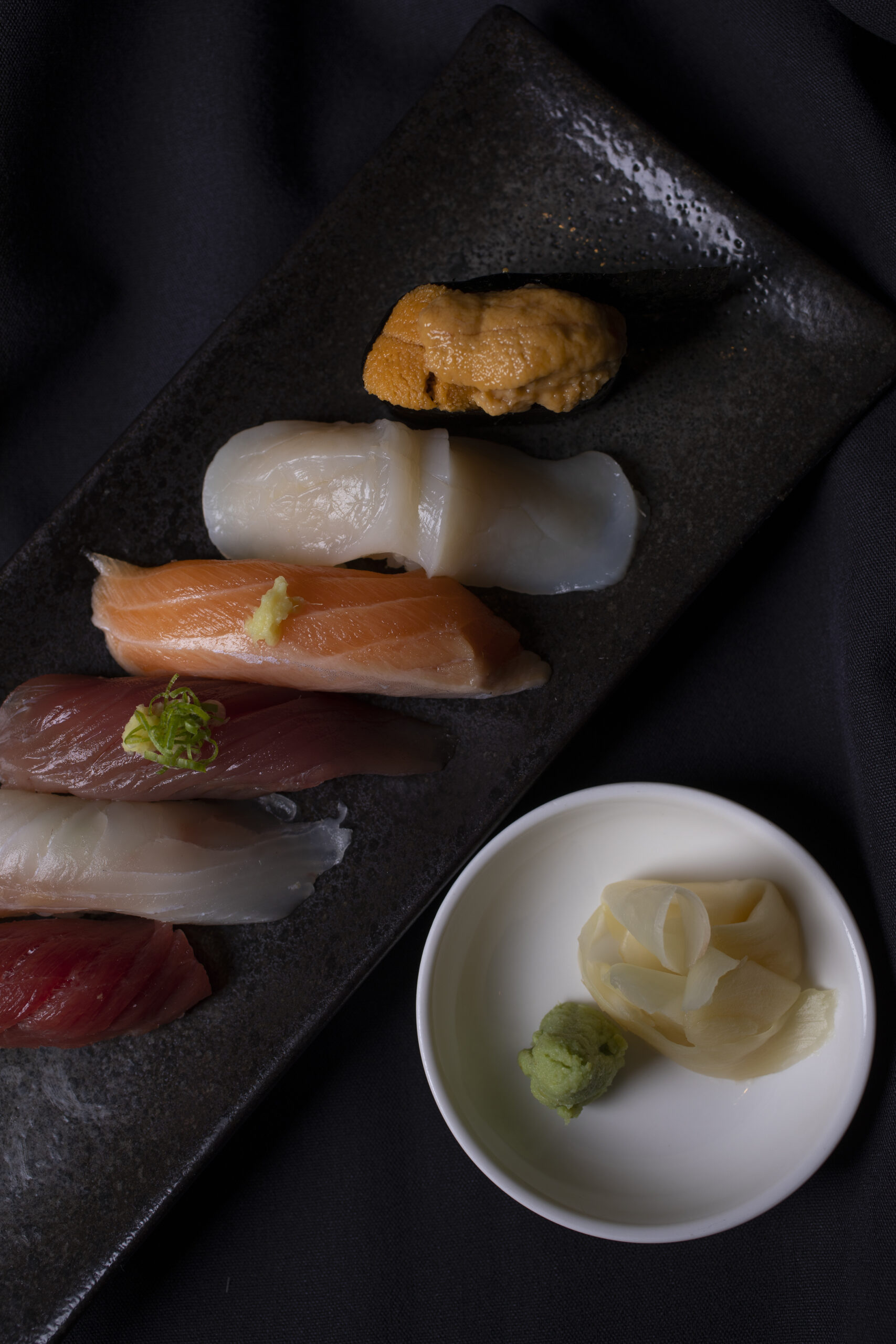
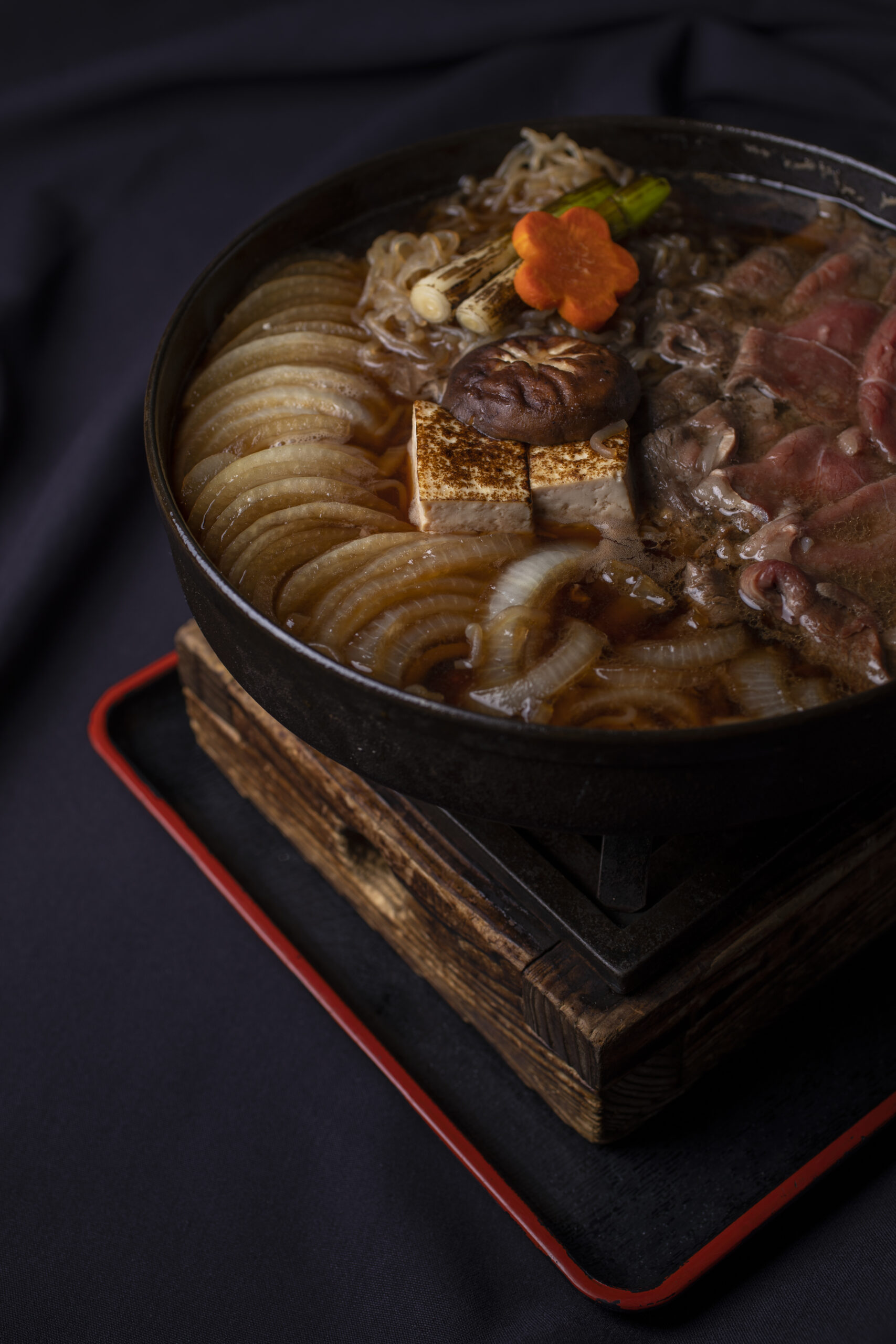
“I was a nobody there. Here, everyone compared me to my father,” Keita said. “I was able to develop a tougher skin there.”
He also delved into the culture and history of Japanese flavors, learning not just the techniques of cooking but the reasons behind those methods — why seasonality and history play a huge part in Japanese cooking.
“My boss (chef/owner Hayashi Ryohei) was very into that. He was into the ‘why,’ not just the ‘how,’ like ‘Why do we eat certain things at certain times of the year?’” he said.
“His take on food was to modernize the traditional in a respectful way,” Keita said.
Past and future
It’s much the same at Hana since the generational transition.
“I’m protecting what needs to be protected and changing what needs to be changed,” Keita said.
He’s cautiously watching for what works at the restaurant, and what doesn’t.
The menu hasn’t changed significantly, but Keita features more seasonal local produce now. On a recent visit, he offered a height-of-the-season tomato salad as an amuse-bouche. Fish on the menu continues to be sourced both locally and from Japan. He’s also revisiting Hana recipes that haven’t changed in decades.
The sushi bar, as ever, is the hot spot of the restaurant. Without the diversion of Ken’s larger-than-life presence, the dining room feels a bit worn, in need of fresh paint and modern tables. The more recently opened sake bar, however, is charming.
By early next year, Keita hopes to tackle some unfinished projects and make the menu entirely his, from start to finish. As he thinks about the future, his father still looms large in his mind.
“What do people feel when they walk in this door?” he said of his father’s constant smile, humor and appreciation for sharing Japanese cuisine. “Those things can’t change. That has to be protected.
“I’m still just learning how my father ran this place. Yes, we argued. We yelled. But those were good things,” Keita said.
“There are a hundred fires burning all the time, and I have to put them all out. But I can only do that one at a time. It feels like it’s been a very long and a very short year.”
Best Bets
Sushi & Sashimi, $8 – $30: Fresh fish is the reason you’re at Hana. Meticulous attention to detail and extensive knowledge make this one of the best places for raw fish in the North Bay. It isn’t cheap, but expect perfect cuts of tuna, mackerel, eel, sea urchin, salmon and seasonal specials with properly seasoned rice. This is the gold standard by which other fish should be measured.
Happy Spoon, $8: A delicious bite that combines a single oyster, uni, ikura and tobiko (roe), with a dot of ponzu-infused crème fraîche, this is a Hana classic.
Ken’s Roll, $22: The founding chef’s namesake roll is a flavorful blend of crispy prawn tempura, spicy tuna, avocado and shichimi pepper. If you’re more of a traditionalist, rolls filled with pickled daikon or plum, squash and even natto (fermented soybeans) are $7. On the other end of the spectrum, the Supreme Roll has toro (fatty tuna), uni and Osetra caviar ($40).
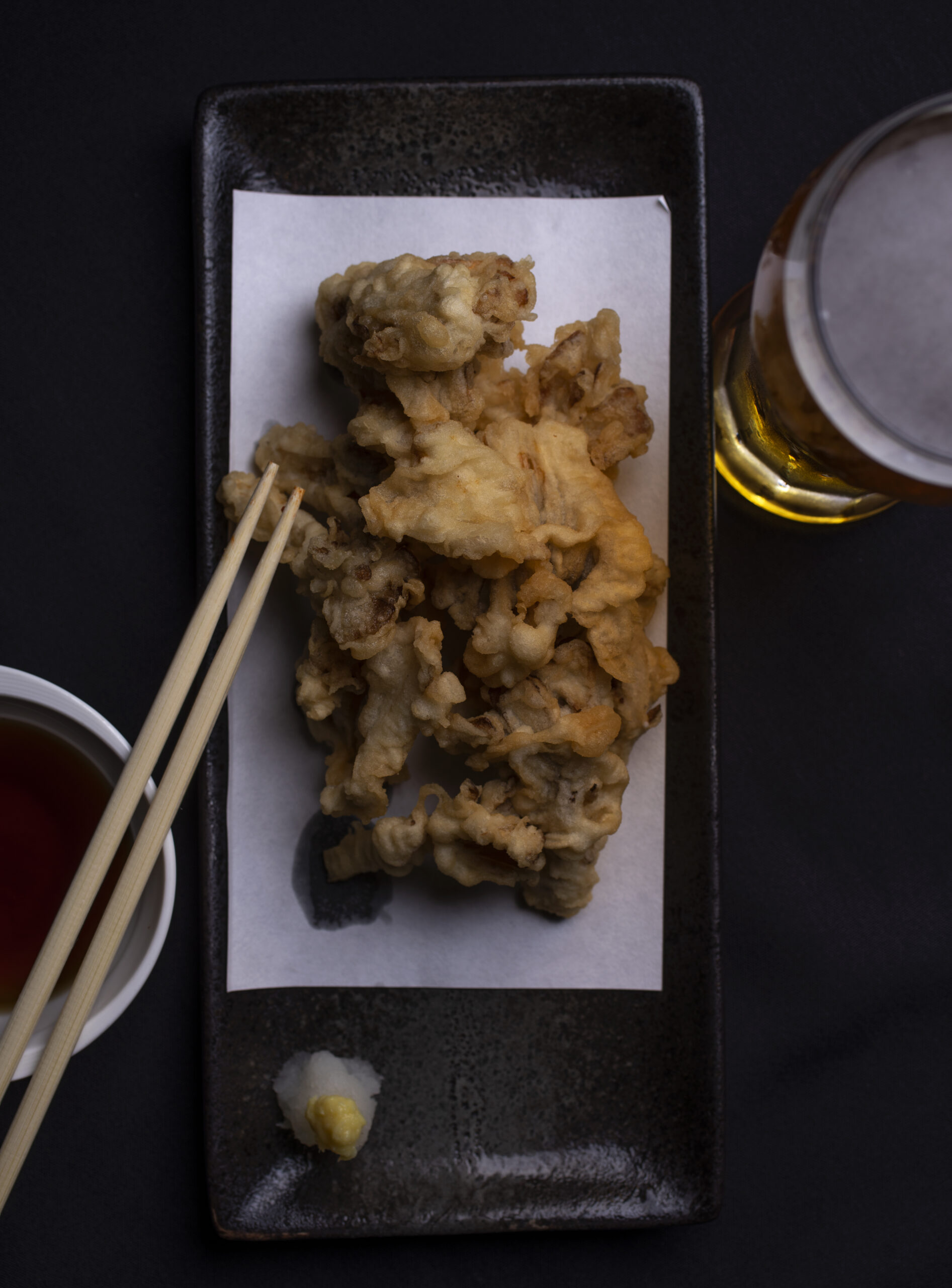
Sukiyaki, $38: Unlike its stylish cousins, ramen and shabu-shabu, sukiyaki isn’t exactly a cultural zeitgeist, but this showstopper should be. A skillet-size Japanese hot pot (or donabe) comes to the table trailing fragrant steam from onions, tofu, mushrooms, green onion and thin strips of rib-eye steak swimming in a sweet, salty, umami-packed broth. Served with rice and a raw egg for dipping into.
The restaurant also serves excellent Hokkaido Miso Ramen ($20) with a rich and salty broth, egg, corn and butter and Tempura Udon ($17) with fried prawns and udon noodles.
Miso Soup, $4 to $7: You’ll never go back to bland prepackaged miso after this. O-Age miso soup is made with red miso and studded with fried tofu and green onion. Asari miso soup is flavored with red miso and Manilla clams.
Sake: The restaurant has a large selection of Japanese sake, although the longtime sake sommelier Danny Pitassy no longer works at Hana. There’s an extensive wine list, too.
Hana Japanese is located at 101 Golf Course Drive, Rohnert Park, 707-586-0270, hanajapanese.com. Open 4:30 to 9 p.m. Tuesday through Thursday, 4 to 9 p.m. Friday and Saturday, closed Sunday and Monday. Last seating at 8:30 p.m.


